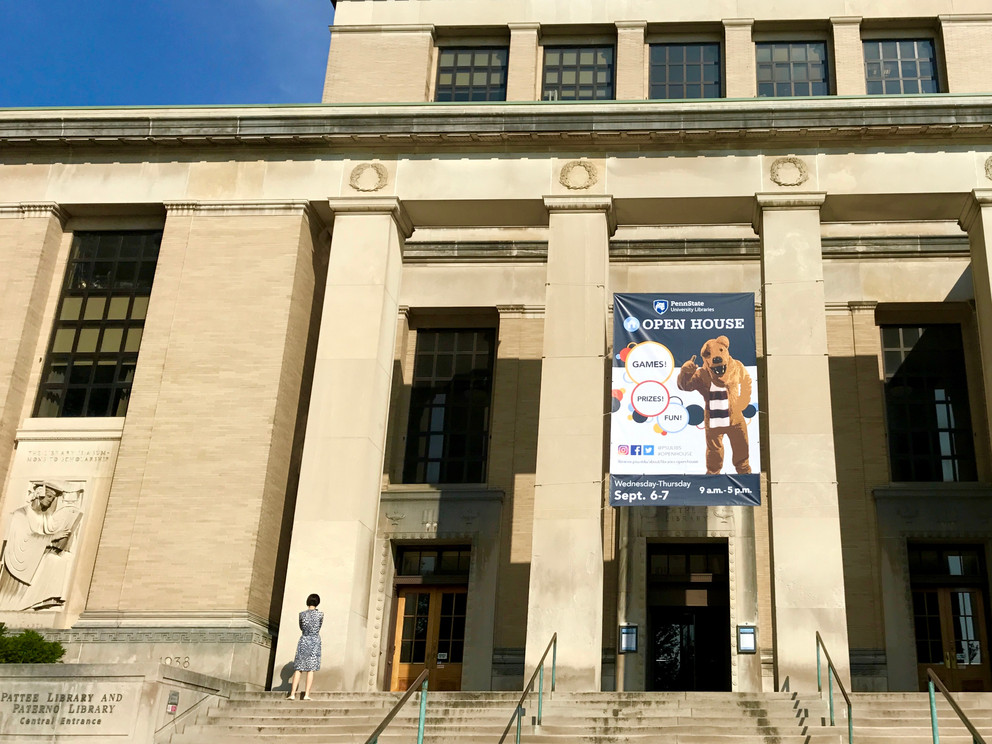
On Wednesdays this February, and one in March, Penn State University Libraries will offer informational sessions relating to foundational map and geospatial topics. The sessions, which do not require registration, are open to all Penn State students, staff, faculty and visitors, and remote viewing is available online using Zoom. In addition, one-on-one map and geospatial research consultations are available through the Penn State Libraries Donald W. Hamer Center for Maps and Geospatial Information.
The sessions are:
Geospatial Exploration: Explore mapping, location topics, applications
3-4 p.m., Wednesday, Feb. 7, Pattee Library 211A and via Zoom
An overview of geographic information systems (GIS) concepts relevant to applying geospatial components in projects, and an introduction to geospatial data, introductory topics of projects, data manipulation, and geoprocessing techniques.
Exploring Open Source GIS: QGIS
4-5 p.m., Wednesday, Feb. 7, Pattee Library 211A and via Zoom
An introduction to using QGIS, an open source GIS software option. Learn more about QGIS from this website. Participants are encouraged to bring their laptop and if desired have QGIS installed to experience first-hand some of the software’s options for working with geospatial data.
Geospatial Online: Overview of online mapping options (ArcGIS Online and more)
3-4 p.m., Wednesday, Feb. 14, Pattee Library 211A and via Zoom
An introduction to ArcGIS Online, a web mapping application which can be used to communicate many spatial research interests across the disciplines. Participants will explore applications created with ArcGIS Online and work with a sample dataset for Centre County, Pennsylvania, to learn the functionality of ArcGIS Online web maps and applications.
Geospatial Analysis: Introduction to working with location data and demographic data (ArcGIS Desktop),
4-5 p.m., Wednesday, Feb. 14, Pattee Library 211A and via Zoom
An introduction to using ArcMap software to work with location data and demographic data. This session will work with sample data; however, participants are encouraged to consider and/or use their own data based on research, work and/or teaching interests. This session will demonstrate general processes of working with location-based data, which may require additional instruction and follow-up in specific contexts, geographic regions, and disciplines.
Geospatial Data: Diving into library resources and beyond
3-4 p.m., Wednesday, Feb. 21, Pattee Library 211A and via Zoom
An overview of geospatial data available from library databases, PolicyMap, SimplyAnalytics, Social Explorer, and Data-Planet. Additional United States and international organizations will be highlighted from maps and geospatial guides, and related resources to guide the user in locating geospatial data relevant to multiple disciplines. Participants will be encouraged to create their own map visualizations with mapping applications during the session.
Focus on PolicyMap: Data sources and visualization options
4-5 p.m., Wednesday, Feb. 21, Pattee Library 211A and via Zoom
A focus on PolicyMap data sources and visualization options. Additional information will be provided on the reporting and data exports option available. Regardless of discipline, PolicyMap can be helpful to identify geospatial data sources, create maps for reporting geospatial trends, and gather demographic characteristics of locations of study.
Two map and geospatial informational sessions are part of the Humanities and Social Sciences Workshops, with remote participation:
QGIS: noon-1 p.m., Wednesday, Feb. 21, Paterno Library 403
Join a lunch-hour tutorial on QGIS, a free and open-source geographic information system for viewing, editing and analyzing spatial data with graphical maps, with Zhiyue Xia.
Ggplot2: noon-1 p.m., Wednesday, March 14, Paterno Library 403
Join a lunch-hour tutorial featuring Ggplot2, and learn to make pretty, easily reproducible and modifiable graphs for publication.
For additional information, contact Tara Lalonde at 814-863-5753 or tll38@psu.edu.